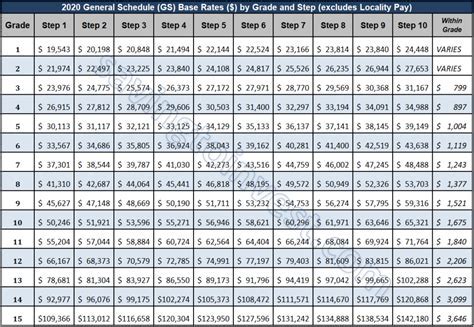12 Fireman Pay Rates To Boost Income

The role of a firefighter is not only rewarding but also demanding, requiring a unique blend of physical strength, mental toughness, and emotional stability. While the sense of fulfillment that comes from saving lives and protecting communities is invaluable, financial compensation is also a critical aspect of any career. For those in the fire service, understanding the various pay rates and potential income boosts is essential for planning a secure financial future. Here’s an exploration of 12 fireman pay rates and strategies to boost income, considering the dynamic nature of firefighting careers and the economic factors that influence them.
1. Base Salary
- Average Range: 40,000 to 100,000 per year
- Variation: Varies greatly by location, experience, and specific fire department
- Boost Strategy: Negotiate based on experience and qualifications, especially during hiring or promotion processes
2. Overtime Pay
- Average Rate: 1.5 times the regular hourly rate
- Variation: Can significantly increase annual income, especially in departments with high call volumes
- Boost Strategy: Volunteer for overtime, especially during peak periods or in areas with high demand for firefighting services
3. Hazard Pay
- Average Rate: Additional 10% to 20% of base pay
- Variation: Applies to high-risk situations or hazardous materials responses
- Boost Strategy: Seek roles or specializations that warrant hazard pay, such as HazMat teams
4. Shift Differential
- Average Rate: 1 to 5 extra per hour for night shifts, weekends, or holidays
- Variation: Encourages firefighters to work less desirable shifts
- Boost Strategy: Opt for night shifts or weekend rotations to accumulate additional income
5. Education Incentives
- Average Bonus: 2% to 10% increase in pay for each degree or certification beyond the minimum requirements
- Variation: Incentivizes continuous learning and professional development
- Boost Strategy: Pursue higher education or specialized certifications to qualify for pay increases
6. Specialty Pay
- Average Rate: 5% to 15% of base pay for specialized roles or skills
- Variation: Applies to expertise like technical rescue, aviation, or fire investigation
- Boost Strategy: Develop specialized skills that are in high demand within the fire service
7. Longevity Pay
- Average Bonus: Annual bonus based on years of service, often 1% to 3% of annual salary
- Variation: Rewards long-term commitment and experience
- Boost Strategy: Plan for long-term service, as longevity pay can significantly contribute to overall compensation
8. Uniform and Equipment Allowance
- Average Allowance: 500 to 1,500 annually
- Variation: Reimburses for maintenance and replacement of personal protective equipment and uniforms
- Boost Strategy: Keep detailed records of expenses to ensure full reimbursement
9. Travel Pay
- Average Rate: Reimbursement for mileage, meals, and lodging for training or response outside the normal duty station
- Variation: Applies to firefighters attending national conferences, training programs, or assisting in disaster responses
- Boost Strategy: Participate in out-of-state training or mutual aid responses to accumulate travel pay
10. Bonus for Physical Fitness
- Average Bonus: 100 to 500 annually
- Variation: Incentivizes maintaining high levels of physical fitness, essential for the demands of firefighting
- Boost Strategy: Engage in physical fitness programs and pass annual fitness tests to qualify for bonuses
11. Health and Wellness Programs
- Average Savings: 500 to 2,000 annually
- Variation: Includes gym memberships, mental health services, and nutrition counseling
- Boost Strategy: Utilize provided health and wellness programs to reduce personal healthcare expenses
12. Retirement and Pension Plans
- Average Benefit: 50% to 80% of final salary after 20 to 30 years of service
- Variation: Provides financial security in retirement
- Boost Strategy: Contribute to supplemental retirement plans, such as 401(k) or IRA, to maximize retirement savings
In conclusion, while base pay rates for firefighters can vary significantly, there are numerous strategies and incentives that can boost income. By understanding these elements and planning accordingly, firefighters can enhance their financial stability and security. Whether through education incentives, specialty pay, or longevity bonuses, each aspect contributes to a comprehensive compensation package that reflects the value and importance of their role in society.
FAQ Section
How does experience impact a firefighter's pay rate?
+Experience significantly impacts a firefighter's pay rate, as more experienced firefighters typically receive higher salaries and are more likely to qualify for promotions and specialty roles.
Can firefighters increase their income through additional certifications or education?
+How does overtime pay contribute to a firefighter's annual income?
+Overtime pay can substantially increase a firefighter's annual income, especially in busy departments or during times of high demand. It's calculated at a rate of 1.5 times the regular hourly rate and can add tens of thousands of dollars to the annual salary.
By leveraging these pay rates and strategies, firefighters can not only enhance their financial stability but also find greater fulfillment in a career that is as rewarding as it is challenging. Whether through direct compensation or indirect benefits, understanding the full spectrum of firefighter pay is crucial for making informed decisions about one’s career and financial future.
